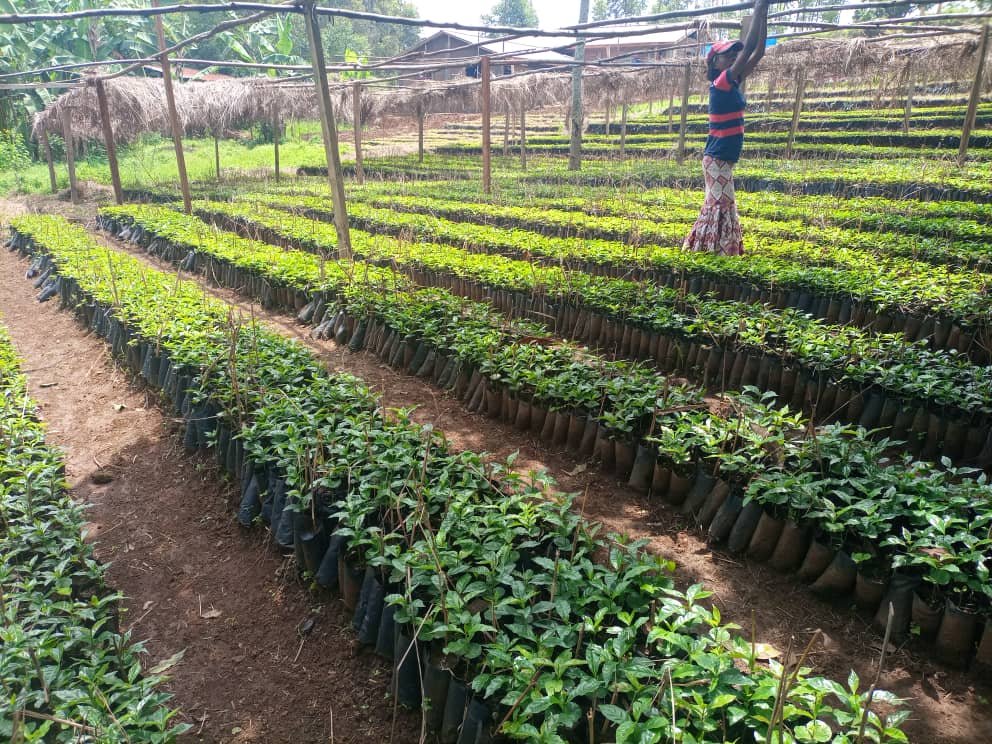Tumaini
Tumaini, which means Hope in Swahili, stands with coffee widows and orphans, to achieve one goal: to promote and reward the unsung contribution of women to the coffee value chain.
Founded in
2016
Location
Between Kazuhi-Biega National Park and Lake Kivu shores, territoire de Kabare, Province du sud Kivu
Altitude
1,500m to 2,000m
Membership
519 producers (125 women and 394 men)
Green coffee production capacity / year
76 tonnes
Varieties
Bourbon
Certifications
Organic
Average size of land per farmer
0.35 hectares
Grades
K3

Headquarter
Miti, Province du Sud Kivu
Infrastructure
1 washing station: Kahisa and 2 micro stations: Ikambi and Birava
Management team
3 women on the board of directors, 1 manager, 1 accountant and 1 cashier
Technical team
8 agronomists of which 4 are women, and 1 supervisor
Main harvest period
March to June
Export period of main harvest
June
Fly crop harvest period
N/A
Fly crop export period
N/A
Tumaini
The cooperative Tumaini, which means Hope, is the transformation of a non-profit organisation into a cooperative in 2016.
Based between Kazuhi-Biega National Park and Lake Kivu shores, the cooperative has been created to support the wives, widows and orphans of poachers that were arrested or killed after stealing wood to make embers, and of coffee farmers that drowned while trying to cross Lake Kivu to sell their coffee in Rwanda.
Certified organic since 2021, the cooperative exported green coffee for the first time in 2021.
Although the preferred culture is coffee, the cooperative encourages farmers to produce soy, beans and fruit in order to create additional income.
In collaboration with Bukavu’s city hall, Tumaini is developing a circular economy model whereby the food waste of households, markets and coffee stations can be recycled and reused in the farms to increase productivity. Tumaini’s agronomists transform waste of the city into manure. Five tonnes of rubbish becomes three tonnes of organic fertilizer after four months. This is then sold and distributed to its members. The International Institute of Tropical Agriculture (IITA) along with ETH Zurich, a Swiss university under the RUNRES project, supported this initiative and provided training to agronomists.
Aline Feza, manager of Tumaini, with a member
The cooperative works to improve the socio-economic life of its members and the wider community.
The cooperative is proud to promote women’s work in the coffee value chain, and to offer hope and a richer quality of life to wives, widows, orphans and victims of violence.
Along with coffee production, the cooperative develops associations of microcredits for the women and young members. These associations gather twenty producers together to join forces to create small-scale income-generating activities during periods when there is no coffee production.
The cooperative is developing several new social activities for its members. It plans to build new schools and health centers, and to create better access to clean water and electricity.
Contact
Aline Feza | Manager | coocatkabare@gmail.com












